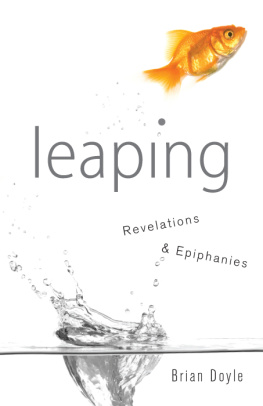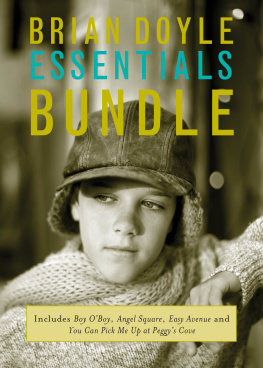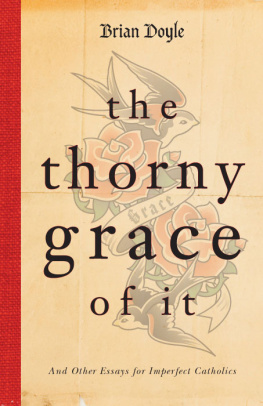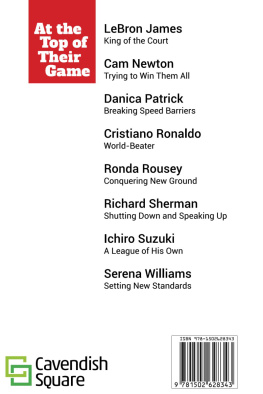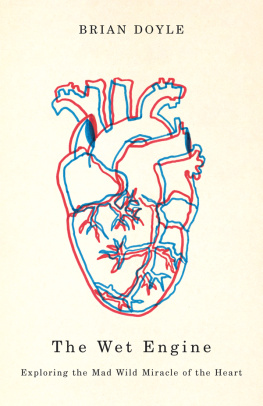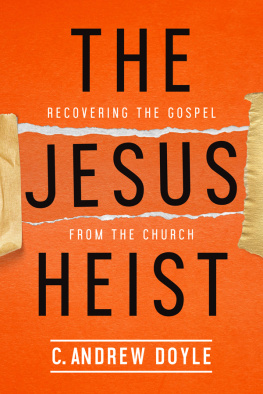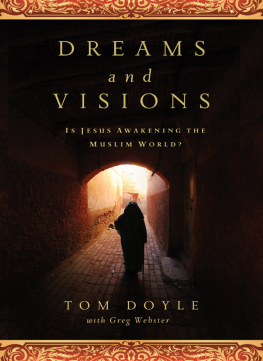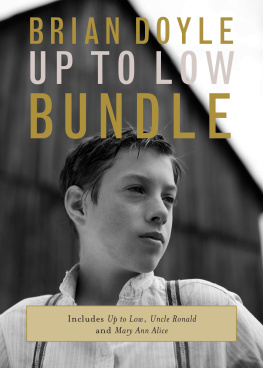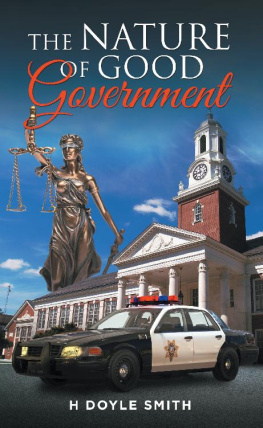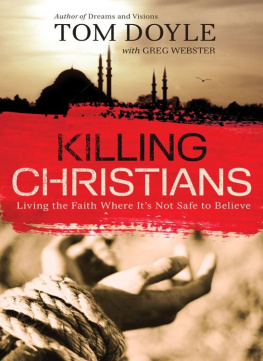
3441 N. Ashland Avenue
Chicago, Illinois 60657
(800) 621-1008
www.loyolapress.com
2013, 2003 Brian Doyle
All rights reserved.
The Bible excerpts in Why Write?, Grace Notes, and Leap are taken from the King James Bible (Cambridge University Press).
The Bible excerpts in Room Eight, Washed Clean, Christs Elbows, and Altar Boy are taken from the Revised Standard Version of the Bible, copyright 1946, 1952, and 1971 by the Division of Christian Education of the National Council of the Churches of Christ in the USA.
The excerpt from the book of Wisdom in Leap is taken from the New American Bible with Revised New Testament and Revised Psalms, copyright 1991, 1986, 1970 by the Confraternity of Christian Doctrine, Washington, D.C. Used with permission. All rights reserved. No part of the New American Bible may be reproduced by any means without permission in writing from the copyright owner.
An excerpt in Grace Notes is taken from Louise Erdrich, The Blue Jays Dance: A Birth Year (New York: HarperCollins, 1995), 7072. Copyright 1995 by Louise Erdrich.
The letter In A Thin Ragged Man is reprinted by permission of Jim Wood.
An excerpt in Reading the Birds is taken from Walt Whitmans The Dalliance of the Eagles, Leaves of Grass (Philadelphia: David McKay, 1900).
Cover art credit: Andrew Johnson/Getty Images
Back cover author photo credit: Jerry Hart
eBook ISBN: 978-0-8294-3905-2
Based on the print edition: 978-0-8294-3904-5
Library of Congress Control Number: 2013940992
13 14 15 16 17 EPUB 5 4 3 2 1
Ah, ten years after Leaping was first inflicted on an unsuspecting world, how very tempting to use this space to make a series of small jokes about being grayer and saltier and much more interested in afternoon napsbut no.
Because here I can say that no essayist has ever gotten such piercing and lovely and passionate responses from readers as I have. No essayist was ever so moved by how his muddled arrows landed in hearts far away. No essayist ever was reminded so often that the point of writing is connection, stimulation, the creation of a quiet country where writer and reader can stand together for a moment in amazement and awe. The essay is a grapple, a cheerfully desperate attempt to drape words on thoughts and emotions mostly too vast for words, and you never write quite as good a piece as you wanted to write, and there will always be readers who fuss and complain and object and nitpick, especially among the Catholic lunatic fringe in which I happily count myself. But since Leaping was first published, I have been blessed with hundreds of letters, paper and electronic both, and the vast majority were reports of arrows landing in hearts that needed exactly that arrow at that moment.
We take this for granted, that we can connect, that we can speak to each other through headlong sentences on pages and pads, and that those sentences, hammered laboriously by a humming man early in the morning in Oregon, travel around the world, and shiver some hearts, and cause people to laugh and weep, and make them feel, for a moment, like they have a brother who knows how they feel. We take this for granted. Its miraculous, really. Its holy. And I have very little to do with it. I just try as hard as I can to say something real, to tell a story that matters somehow, and then its off and away on its own. An essay is very much like a child whom you raise slowly, doing the best you can to shape him straight and true and generous and openhearted, and then away he goes, to bring his own wild light to the world, and all you can do is sit at your desk and weep with pleasure at the messages you get from those whose hearts he hit.
Theres a great deal else we could say here about the essay, which I think is the coolest of all forms, because its closest to our speaking voices, and its unadorned and unfiltered, and it has none of the prim mannerisms that often afflict other forms, and its the crucial backbone of memoir and nature writing and spiritual writing, but lets stay with this one point: Isnt it sweet and wild and amazing that sometimes an essay just completely sizzles your heart and becomes something youll never forget the rest of your life? Isnt that great? Isnt that, no kidding, holy?
Brian Doyle
When I was younger, I wanted desperately to be an essayist. Thankfully, my early attempts corresponded with the publication of Brian Doyles Altar Boy and The Meteorites in back-to-back volumes of Best American Essays. These essays stood out, even from the other best ones, because they revealed a caring writer whose sentences afforded insights into souls. I, too, had been an altar boy, though Id never thought to distill those years into lyrical prose to meditate on the folly of memorizing masses, or the deficiency of our judgments, or the ritual forms in which we try to approach the great mystery. But really, the appeal wasnt about relating to the narrated experience anyway. Id never been a summer camp counselor, but I thrilled to read about eighteen-year-old Brian Doyle leading his gaggle of boys through their various activities, remembering them in vast meadows of complex sentences that pulsed with life, like speech or thought, or memory itself, wending through lush description and vibrant characterization to return to an early scene of Doyle cleaning an embarrassed child who has soiled himself, the sacramentality of the experience suddenly coming into focus and working backward through the essay to mean something utterly unexpected and yet inevitable about the deep workings of love.
Both of those great essays grace the pages of this book, as do so many other beautiful pieces about crucifixes and geese and grieving and Irish legends and birds and dirt and bees and basketball and children and Sunday school and anchovies and a host of other objects and occasions and oddities. Or maybe those arent the essays subjects at all. Better, perhaps, to think of them as dancing, quick approaches to universal and unsolvable complexities: fortune, mutability, death, grace, belief. Doyle is an explorer and an edifier whose eyes are not blind to human frailties and failings but whose attention fixes on possibilities and quirky beauties. All the essays in Leaping, it seems, deal in some way or another with love, our greatest and hardest work. Love is the driving force underneath them, the payout for the attentive reader.
Love is even behind Leapings three essays on the tragedies of September 11, 2001. There is Leap, a kaleidoscopic, pummeling view of a couple who leaped hand in hand from the south tower of the World Trade Center. There is Kaddish, a strangely powerful, repetitive, reductive list that humanizes a few hundred of that days victims. There is memory as a prayer against murder in a eulogy for Doyles friend Tommy Crotty. These pieces fulfill achingly and beautifully Doyles goal to celebrate human strength and virtue against all that is foul and evil, to defeat terror not by bowing to fear but by boldly pronouncing the triumphs of that day. They will move you to tears. I believe that people long into the future will be humbly grateful that editor Anne Fadiman had the insight to ask Brian to write about the attacks, and that when he demurred, his daughter, Lily, had the insight to sass her father into using the one talent he had to find the goodness that others overlooked. Generations will rejoice that his celebrations of grace under duress part the sea of empty opinion and windy rhetoric and witless commentary that sprouted up so quickly in the wake of those unspeakable acts.

